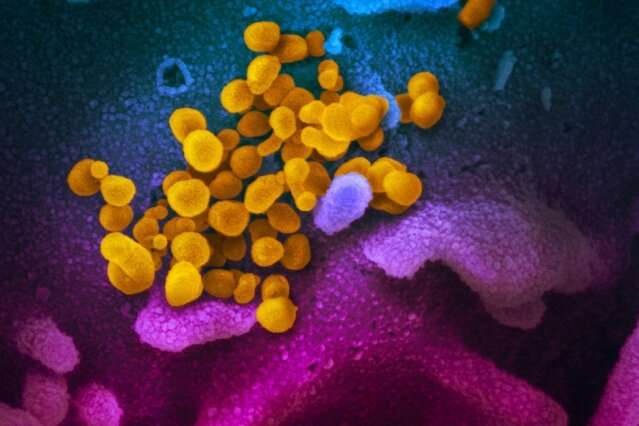Type III interferons: Protective or harmful in COVID-19?

Interferons and other cytokines produced by the immune system are important defenses against viral infections, but as we have seen in COVID-19, they can also contribute to damaging, potentially life-threatening lung inflammation. Recent evidence suggests that one type of interferon, known as type III interferon or interferon lambda (λ), can fight viral infection while limiting this inflammatory damage. That has led to clinical trials to test type III interferon as a treatment for COVID-19.
But in the journal Science, researchers at Boston Children's Hospital, with collaborators in Italy, now provide evidence that type III interferons can increase the risk of life-threatening bacterial "superinfections" in the lung. Superinfections can occur in both influenza and COVID-19, and the investigators caution that type III interferons given later in the course of COVID-19 could do more harm than good.
"Our data indicate that SARS-CoV-2 inhibits interferon production in the upper airways, weakening the immune response and helping the virus survive," says senior investigator Ivan Zanoni, Ph.D., an immunologist at Boston Children's. "But when the virus reaches the lower airways, there is an exuberant immune response, including upregulation of type III interferons that we think is harmful."
The team first tested samples from patients with severe COVID-19 and healthy controls. Interferon III was not much increased in the patients' nasopharyngeal swab samples, but was markedly elevated in their lung fluid.
The researchers then exposed mice to synthetic viral RNA to mimic the effects of SARS-CoV-2 infection in the lower airways. They showed that interferon III levels rose markedly in the animals' lungs as compared with control mice, and that sustained production of interferon III prevented the lungs from maintaining their protective surface barrier. This, in turn, made the animals more susceptible to lethal bacterial infections from Staphylococcus aureus: experiments showed increased amounts of bacteria and higher mortality as compared with control mice.
"There's still a lot to understand, but it looks like location and timing of interferon production are key," says Zanoni. "Early during SARS-CoV-2 infection, when the virus is in the upper airways, it might be important to intervene with recombinant interferons and other antivirals. But later on, when inflammation is highly increased in the lower airways, it will be important to block the signaling cascade initiated by interferons and other inflammatory cytokines, possibly with the anti-inflammatory drugs."
More information: Achille Broggi et al, Type III interferons disrupt the lung epithelial barrier upon viral recognition, Science (2020). DOI: 10.1126/science.abc3545


















